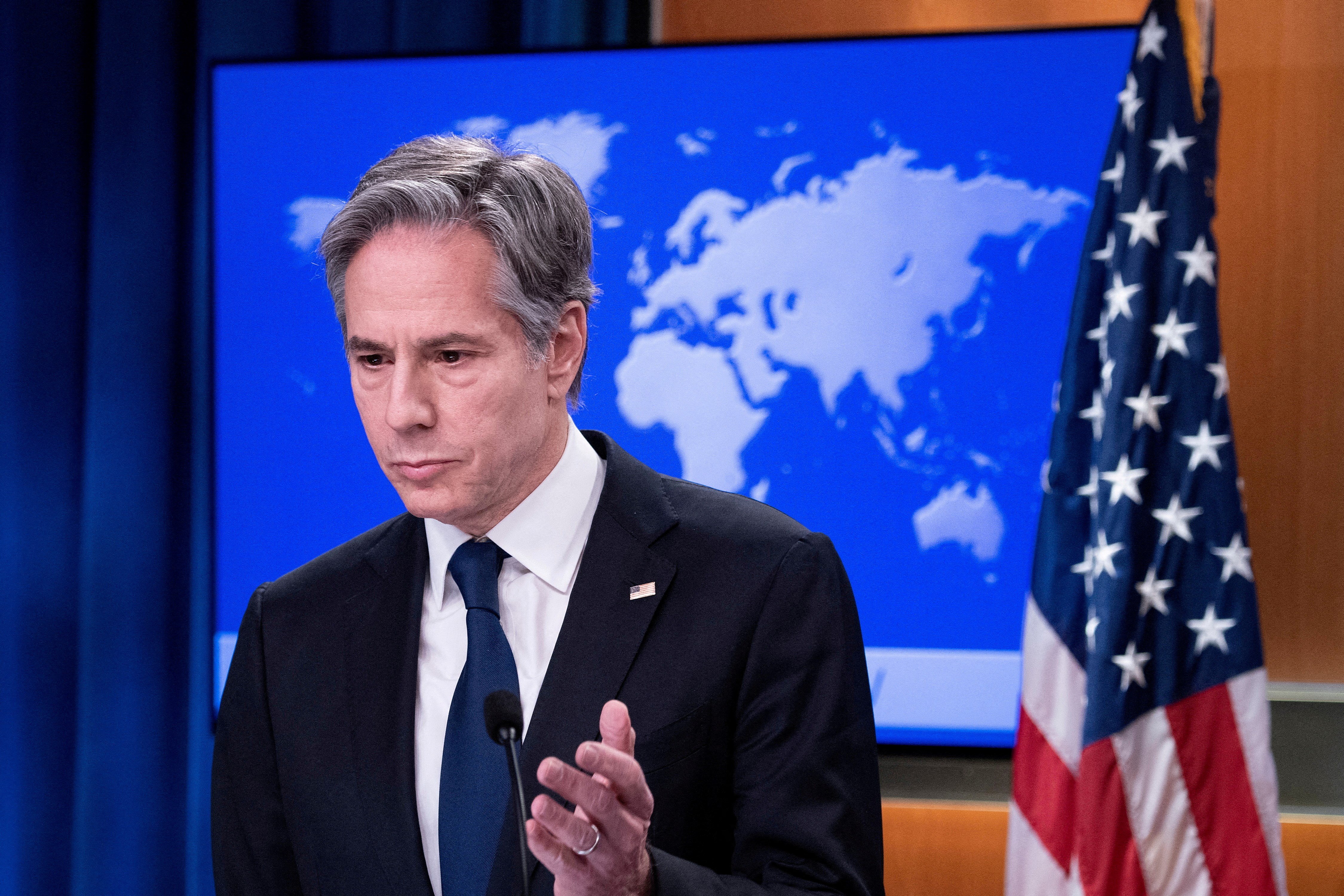US won't leave 'European friends' in cold amid energy crisis: Blinken
The United States vows to "not leave European friends" amid the energy crisis in Europe while pushing for more sanctions against Russia.
-

US Secretary of State Antony Blinken speaking during a briefing on January 26, 2022 (Reuters)
The United States will not leave its European allies out in the cold amid the energy crisis caused by sanctions on Russian supplies, Secretary of State Antony Blinken said on Friday.
"While the costs of standing up to the Kremlin’s aggression are high, the costs of standing down would be even higher ... We won’t leave our European friends out in the cold," he said at a press conference with NATO Secretary General Jens Stoltenberg.
On his part, Jens Stoltenberg urged allies on Friday to supply Kiev with winter gear such as clothing, tents, and generators to enable Ukrainian troops to keep on fighting Russia in the cold season.
Average winter temperatures are below freezing for much of the country and it is not unusual for temperatures to drop to minus 15 degrees Celsius.
"The winter is coming, it's going to be hard, and therefore we need both to continue to supply weapons and ammunition but also winter clothing, tents, generators and all the specific equipment which is needed for the winter," Stoltenberg told reporters after his meeting with Blinken.
“The initial signs are positive, and we see Ukraine making real, demonstrable progress in a deliberate way,” Blinken said.
“But this is likely to go on for some significant period of time,” he said. “There are a huge number of Russian forces that are in Ukraine.”
In June, NATO leaders agreed to an aid package for Ukraine and Stoltenberg underlined that the Alliance would support Ukraine for the long term. Stoltenberg said the war in Ukraine is entering a critical phase, “All of us will pay a much higher price if Russia and other authoritarian regimes see that their aggression is rewarded. If Russia stops fighting, there will be peace. If Ukraine stops fighting, it will cease to exist as an independent nation. So we must stay the course, for Ukraine’s sake and for ours.”
Read next: NATO, EU to deepen relation, Ukraine not the focus
German finance minister to suggest EU adopts Russian oil price cap
The decision to impose price caps on Russian oil was adopted unanimously at a virtual meeting of G7 finance ministers and central bank leaders, on September 2, at the informal meeting of the Economic and Financial Affairs Council (ECOFIN).
On September 9, German Finance Minister Christian Lindner suggested that he was going to call on the EU member states to support the Russian oil price cap decision.
Before the ECOFIN conference in Prague, Lindner stated, "I will be inviting all members of the EU to support the idea of an oil price cap in the G7 context, we reached an agreement that we are supportive of an oil price cap. We want to avoid higher revenues for Russia, and we want to secure, to maintain the price level for our economies, and one favorable mean is the oil price cap, and it is more effective when more member states of the EU support this idea."
Read next: 'Cold spell is coming' if Europe continues with sanctions: Medvedev

 3 Min Read
3 Min Read








